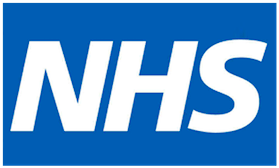
PCN General Practitioner
- Stockton-on-Tees, County Durham Ferryhill, County Durham
- Permanent
- Part-time
- Share of routine and urgent appointments both face to face and telephone.
- Prescribe as per local & national guidelines.
- Share of home visits if required.
- Time-manage completion of administration: letters, results, tasks, referrals, telephone calls, emails.
- Take responsibility for appropriate referrals (following local guidance and good medical practice) and administration pertaining to them.
- Participate in Extended Hours between 6.00pm - 8.30pm if required by the PCN.
- Work with other health and social care providers to ensure a safe and integrated service. Provide comprehensive assessment, advice, and treatment for the registered practice population.
- Maintain accurate and comprehensive records of consultations using SystmOne.
- To provide clinical support to other members of staff, both clinical and administrative, in achieving the highest possible standards of care and QOF and Enhanced Services targets.
- The content of this post will be reviewed in consultation with the post-holder when necessary and in line with the service developments.
- Recording clear and contemporaneous I.T. based consultation notes to agreed standards.
- Provide safe, evidence-based, cost-effective, individualised patient care within the hub, surgery, patients own home.
- Clinically examine and assess patient needs from a physiological and psychological perspective, and plan clinical care accordingly referring patients to other services/agencies in a timely manner using local guidelines.
- To recognise the need for and be able to perform and interpret investigatory procedures, including laboratory and radiology.
- Prioritise health problems and intervene appropriately to assist the patient in complex, urgent or emergency situations, including initiation of effective emergency care.
- Ensure appropriate follow up of patients.
- Support patients to adopt health promotion strategies that promote healthy lifestyles and apply principles of self-care.
- Support and work with colleagues towards the delivery of anticipatory care plans.
- Recognise and work within your own competence and in accordance with professional codes of conduct, maintaining accurate and contemporaneous health records.
- Independently prescribe for patients within your scope of practice. Prescribing in accordance with locally agreed or national guidelines.
- Review medications following the appropriate policies, NICE/local clinical guidelines and local care pathways.
- To maintain an awareness of developments in clinical practice.
- Awareness of and compliance with all relevant practice/PCN policies/guidelines e.g. prescribing, confidentiality, data protection, health and safety and QOF standards.
- Be aware of your duties and responsibilities regarding current legislation and adhere to our policies and procedures on Safeguarding Children and Safeguarding Adults.
- Using personal security systems within the workplace according to PCN guidelines.
- Identifying the risks involved in work activities and undertaking such activities in a way that manages those risks.
- Making effective use of training to update knowledge and skills.
- Using appropriate infection control procedures, including maintaining a tidy and safe way work area free from hazards. Effective hand hygiene.
- Provide advice on the correct and safe management of the specimen's process, including collection, labelling, handling, use of correct containers, storage and transport arrangements.
- Correct use of personal protective equipment (PPE) in both routine and extraordinary circumstances.
- Managing directly all incidents of accidental exposure.
- Safe use of sharps, storage and disposal.
- Reporting potential risks identified.
- Recording clear and contemporaneous I.T. based consultation notes to agreed standards.
- Provide safe, evidence-based, cost-effective, individualised patient care within the hub, surgery, patients own home.
- Clinically examine and assess patient needs from a physiological and psychological perspective, and plan clinical care accordingly referring patients to other services/agencies in a timely manner using local guidelines.
- To recognise the need for and be able to perform and interpret investigatory procedures, including laboratory and radiology.
- Prioritise health problems and intervene appropriately to assist the patient in complex, urgent or emergency situations, including initiation of effective emergency care.
- Ensure appropriate follow up of patients.
- Support patients to adopt health promotion strategies that promote healthy lifestyles and apply principles of self-care.
- Support and work with colleagues towards the delivery of anticipatory care plans.
- Recognise and work within your own competence and in accordance with professional codes of conduct, maintaining accurate and contemporaneous health records.
- Independently prescribe for patients within your scope of practice. Prescribing in accordance with locally agreed or national guidelines.
- Review medications following the appropriate policies, NICE/local clinical guidelines and local care pathways.
- To maintain an awareness of developments in clinical practice.
- Awareness of and compliance with all relevant practice/PCN policies/guidelines e.g. prescribing, confidentiality, data protection, health and safety and QOF standards.
- Be aware of your duties and responsibilities regarding current legislation and adhere to our policies and procedures on Safeguarding Children and Safeguarding Adults.
- Using personal security systems within the workplace according to PCN guidelines.
- Identifying the risks involved in work activities and undertaking such activities in a way that manages those risks.
- Making effective use of training to update knowledge and skills.
- Using appropriate infection control procedures, including maintaining a tidy and safe way work area free from hazards. Effective hand hygiene.
- Provide advice on the correct and safe management of the specimen's process, including collection, labelling, handling, use of correct containers, storage and transport arrangements.
- Correct use of personal protective equipment (PPE) in both routine and extraordinary circumstances.
- Managing directly all incidents of accidental exposure.
- Safe use of sharps, storage and disposal.
- Reporting potential risks identified.
- Newly qualified GP (within 2 years and not having had a substantive post) with full GMC registration and license to practice.
- Newly qualified GP (within 2 years and not having had a substantive post) with full GMC registration and license to practice.